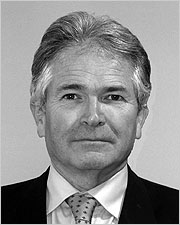Adjudication is a form of alternative dispute resolution (ADR) predominantly used in the construction industry as a mechanism to ensure the smooth running of any contract under which a dispute arises and to enable this dispute to be quickly and efficiently resolved.
The resolution of a dispute by adjudication is often defined in the original contract and the adjudication process begins when a notice of adjudication is served by either party. An adjudicator will then be appointed, who will receive submissions and carry out investigations before reaching a final and legally binding decision.
Adjudication became a compulsory route for dispute resolution in the construction industry in 1996 with the introduction of the Housing Grants, Construction and Regeneration Act (the Construction Act) and was introduced as a way of resolving disputes more quickly and effectively than through formal litigation or even arbitration.
The adjudication process usually takes place over 28 days (from the date the dispute is referred to an adjudicator to the adjudicator’s final decision being rendered), and is designed to reach resolution as quickly and efficiently as possible whilst maintaining a working relationship between the disputing parties. Because the process is so quick there is little margin for error however, so selecting the right adjudicator with the right experience and expertise is crucial.
People grow through experience if they meet life honestly and courageously. This is how character is built.”
Eleanor Roosevelt
While choosing the right adjudicator is one of the most important aspects of the adjudication process, it can also be one of the most difficult. An adjudicator should always be fully qualified, impartial and unbiased and he or she tends to be a construction professional or construction lawyer and therefore experienced in resolving any type of dispute that may arise. Different adjudicators bring different tools, skills and experiences to the table that can vary significantly however, so in order to select the right adjudicator it’s important to look carefully at the specifics of the dispute, its context, and even the value of the claim. Some cases will require greater expertise or in-depth knowledge of a specific industry or field for example. Disputing parties can sometimes disagree on the nominated adjudicator in which case the end result is usually a panel appointment of an adjudicator that neither party has chosen.
Once nominated the adjudicator will communicate with the disputing parties to finalise the scope and terms of the adjudication; it is worth remembering that the adjudicator has the power of making a final and legally binding decision on the outcome of the dispute so taking the time to choose the right adjudicator with the requisite professional and legal knowledge is essential.
For directory of articles on adjudication services please click here.
Expert Evidence is a professional firm concentrating on the four main areas of dispute resolution; acting as expert witnesses in financial litigation, mediation, arbitration and adjudication. The firm has a civil, criminal and international practice and has advised in many recent cases. Areas of specialisation include banking, lending, regulation, investment, and tax.
Ask a question about adjudication services. We are here to help!
Disclaimer – Please confirm any of the above views with your solicitor. Expert Evidence takes no responsibility or provides any guarantee that the views above are correct for your particular case or jurisdiction.


















